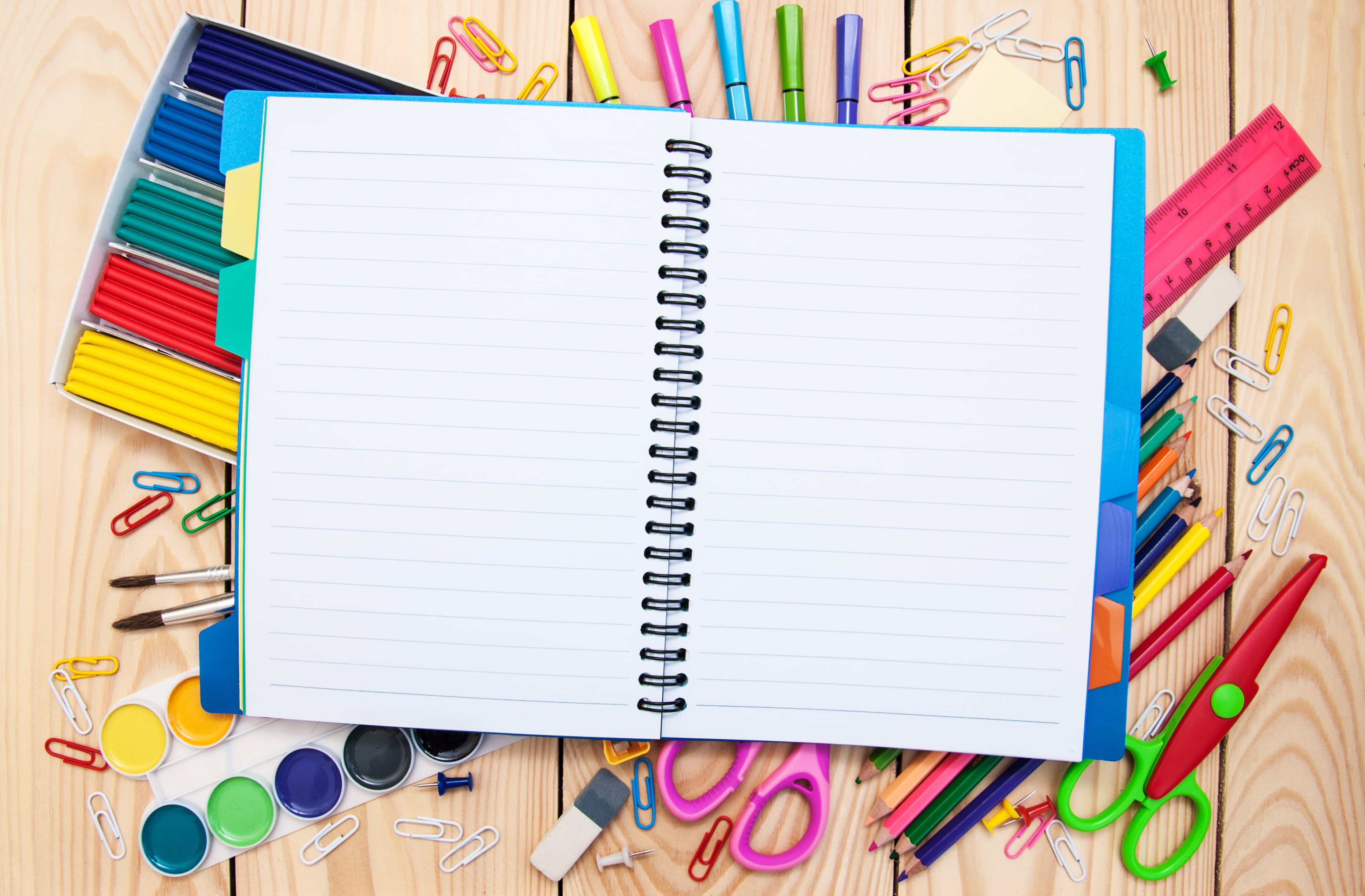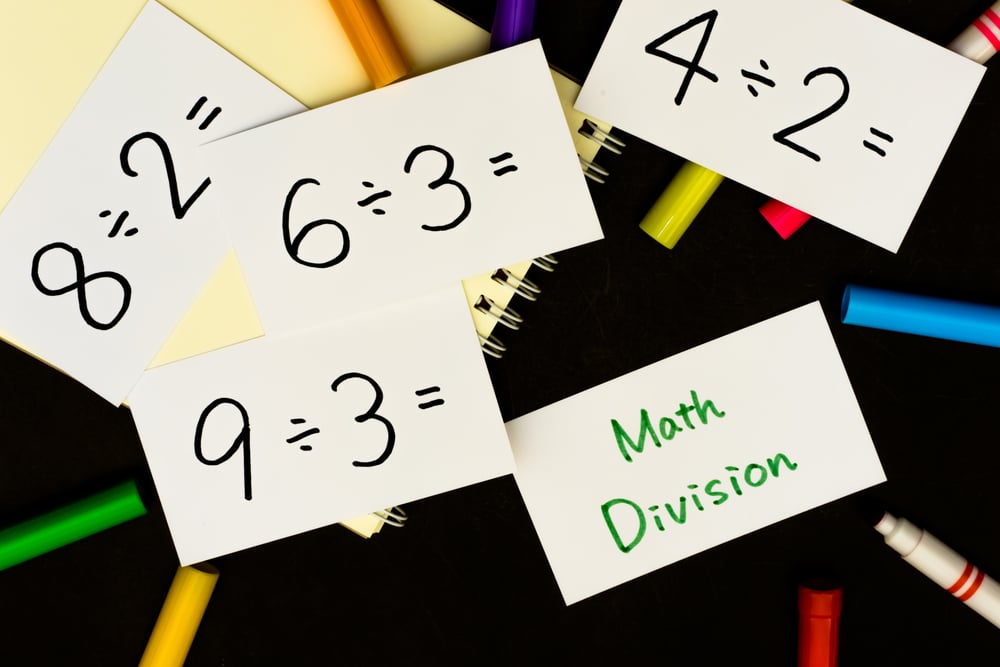
A Simple Guide to Talking About School in French
Whether you’re navigating a new French class, preparing for the speaking portion of a test like the GCSE or making friends with French-speaking students, it’s important to know lots of school vocabulary.
In this post I’ll give you a list of useful school-related vocabulary, with more than 100 words for people, places and things you’ll need to know for talking about school in French.
Contents
- People at School
- Levels of Schooling
- Grades
- School Subjects
- Rooms in a School Building
- School Supplies
- School Assignments
- And one more thing...
Download: This blog post is available as a convenient and portable PDF that you can take anywhere. Click here to get a copy. (Download)
People at School
L’étudiant / L’étudiante – Student
Le/ La camarade de classe – Classmate
Le professeur – Teacher/Professor
L’entraîneur – Coach
L’infirmier / L’infirmière – Nurse
Le proviseur / Le chef d’établissement – Principal or Headmaster
Le proviseur adjoint – Vice Principal
Levels of Schooling
L’école – School
L’école public – Public school
L’école privée – Private school
L’école de langue – Language school
L’école maternelle – Preschool
L’école primaire – Primary school
Le collège – Middle school
Le lycée – High school
L’université / la fac – College
L’université is the official term for “college,” but many French people casually refer to college as la fac.
Je suis à la fac cette année. (I am in college this year.)
L’école supérieure de troisième cycle – Graduate school
Le doctorat – Doctorate degree
La faculté de médecine – Medical school
La faculté de droit – Law school
Je vais au / à la … – I go to …
Je vais au lycée. (I go to high school.)
Je vais à la fac de médecine. (I go to med school.)
Grades
Le cours préparatoire or CP – First grade
Le cours élémentaire 1re année or CE1 – Second grade
Le cours élémentaire 2e année or CE2 – Third grade
Le cours moyen 1re année or CM1 – Fourth grade
Le cours moyen 2e année or CM2 – Fifth grade
La sixième – Sixth grade
La cinquième – Seventh grade
La quatrième – Eighth grade
La troisième – Ninth grade
La seconde – 10th grade
La première – 11th grade
La terminale – 12th grade
La première année d’université – First year of college
La seconde année d’université – Second year of college
La troisième année d’université – Third year of college
La quatrième année d’université – Fourth year of college
Être en – To be in [grade]
Mon fils s’appelle Daniel. Il est en CM1. (My son’s name is Daniel. He is in fourth grade.)
Je suis en première année à l’université. (I am in my first year of college.)
School Subjects
Le français – French
L’anglais – English
L’espagnol – Spanish
L’allemand – German
Le latin – Latin
Les maths – Math
Les sciences – Science
L’éducation physique – PE
L’histoire – History
La géographie – Geography
La biologie – Biology
La physique – Physics
La chimie – Chemistry
L’algèbre – Algebra
La géométrie – Geometry
Le calcul – Calculus
Les arts plastiques – Art
La musique – Music
Le théâtre – Theater
La chorale – Choir
L’orchestre – Band
La littérature – Literature
L’écriture créative – Creative writing
La médecine – Medicine
Le droit – Law
J’ai … maintenant. – I have … now.
Je dois partir! J’ai chimie maintenant. (I have to leave! I have chemistry now.)
J’ai espagnol à 9h. (I have Spanish at 9am)
Je suis un cours de… – I am taking a course in…
Je suis un course d‘écriture créative cette année. (I am taking a creative writing course this year.)
Note that the verb used here is suivre (literally, “to follow”), not être (to be).
J’aime… – I like…
J’aime le théâtre. C’est mon cours préféré! (I like theater. It is my favorite class!)
Je n’aime pas – I don’t like …
Je n’aime pas la géographie. C’est barbant! (I don’t like geography. It’s boring!)
Rooms in a School Building
La salle de classe – Classroom
Le bureau – Office
Le bureau du proviseur – Principal’s office
L’infirmerie – Nurse’s office
Le gymnase – Gym
La cafétéria / la cantine – School cafeteria
Le resto-U – University cafeteria
La résidence universitaire – Dormitory
Le laboratoire / le labo – Laboratory
L’amphithéâtre / l’amphi – Lecture hall
School Supplies
Le cahier / le carnet – Notebook
Le manuel – Textbook
Le classeur – Binder/folder
Le stylo – Pen
Le crayon – Pencil
La calculatrice – Calculator
L’ordinateur – Computer
Le portable – Laptop
Le sac à dos – Backpack
Le surligneur – Highlighter
La gomme – Eraser
La craie – Chalk
Le marqueur – Felt tip marker
L’éponge – Eraser for the chalkboard or whiteboard
La colle – Glue
Les crayons de couleur – Colored pencils
Les crayons gras – Crayons
La règle – Ruler
Les fiches – Index cards
La gamelle – Lunchbox
Le papier – Paper
Le papier millimétré – Graph paper
Le correcteur fluide – White-out
Les ciseaux – Scissors
L’agrafeuse – Stapler
School Assignments
Le devoir – Assignment/paper
Les devoirs – Homework
Yes, a specific assignment and homework in general (which may include multiple assignments) are differentiated simply by making the word plural. Languages are weird, aren’t they?
L’interro – Quiz
L’examen – Exam/test
L’attestation de DELF /DALF – DELF/DALF certification
If you study abroad or study at a language school, you might try to earn your DELF or DALF certification.
DELF stands for Diplôme d’études en langue française, or “Diploma in French Studies.” DALF stands for Diplôme approfondi de langue française, or “Diploma in Advanced French.”
Le discours – Speech
Le diplôme – Degree
J’ai un diplôme en… – I have a degree in…
J’ai un diplôme en pédagogie de langue française. (I have a degree in French education.)
À rendre… – Due
Mes devoirs de sciences sont à rendre demain. (My science homework is due tomorrow.)
Désolé, je ne peux pas sortir ce soir. J’ai un long devoir à rendre cette semaine. (Sorry, I can’t go out tonight. I have a long paper due this week.)
FluentU takes authentic videos—like music videos, movie trailers, news and inspiring talks—and turns them into personalized language learning lessons.
You can try FluentU for free for 2 weeks. Check out the website or download the iOS app or Android app.
P.S. Click here to take advantage of our current sale! (Expires at the end of this month.)
Now you can use these terms and basic phrases in French conversations about school!
Download: This blog post is available as a convenient and portable PDF that you can take anywhere. Click here to get a copy. (Download)
And one more thing...
If you like learning French on your own time and from the comfort of your smart device, then I'd be remiss to not tell you about FluentU.
FluentU has a wide variety of great content, like interviews, documentary excerpts and web series, as you can see here:

FluentU brings native French videos with reach. With interactive captions, you can tap on any word to see an image, definition and useful examples.

For example, if you tap on the word "crois," you'll see this:

Practice and reinforce all the vocabulary you've learned in a given video with learn mode. Swipe left or right to see more examples for the word you’re learning, and play the mini-games found in our dynamic flashcards, like "fill in the blank."

All throughout, FluentU tracks the vocabulary that you’re learning and uses this information to give you a totally personalized experience. It gives you extra practice with difficult words—and reminds you when it’s time to review what you’ve learned.
Start using the FluentU website on your computer or tablet or, better yet, download the FluentU app from the iTunes or Google Play store. Click here to take advantage of our current sale! (Expires at the end of this month.)










